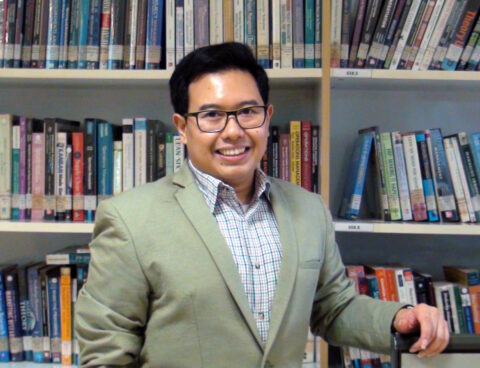
AHMAD SEIICHI RAMADHAN, SE., M.M.
Ahmad Seiichi Ramadhan, SE, M.M. earned his Master Degree in Business Management from BINUS Business School and his Bachelor Degree in Management from Universitas Bina Nusantara. His work experience includes assisting various research and consulting projects with multi-national companies such as Astra International, Allianz Indonesia and AON Consulting Singapore. Currently, he serves in BINUS BUSINESS SCHOOL’s Academic Development Division as a Research Manager.
Case Document
[CASE STUDY] BAKMI GM: LONGEVITY STORY OF A NOODLE RESTAURANT
[CASE STUDY] VAN GOGH MUSEUM: A DIGITALLY ENGAGED MUSEUM
In 2014, the Van Gogh Museum (VGM) had hopes to continue its mission to enrich and inspire as many people as possible by giving access to the museum’s entire collection and knowledge on Vincent van Gogh. In order to achieve this mission, the museum had come up with strategies that made use of the ever-growing digital world, through its web strategy and social media. These strategies were aimed to help the museum reach out to as many of its visitors and non-visitors as possible, and develop constant relationship with them by creating dialogue.
However, like any other businesses, threats and challenges were apparent in the way. The reinstated photography ban by the museum might seem to cause certain threat to the way the museum was going. Especially with the trending term of ‘selfie’ in the digital world in that same year, leading to the birth of the ‘Museum Selfie Day’ project, there was high chance the museum’s strategy might suffer.
[CASE STUDY] INDONESIA MENGAJAR: A GIFT TO THE NATION
The case presents an Indonesian NGO named Indonesia Mengajar (IM) and its holistic approach in education issue. IM believe that the society can be independent by and grow stronger, and believe that the education development in one area is determined by the educational local actors, such as teachers, parents, the regency government and the people.
The case shared the best practice of recruiting young people into education sector. However, IM’s teacher recruitment method is still questioned, whether being a teacher is a temporary or a lifetime profession? Lastly, the IM’s achievements and inspiring young educators’ stories were aims to stimulate the readers, how we as citizen can contribute in developing the nations.
[CASE STUDY] TAKING THE LEAP: FROM PORN TO STAR
In 2008, Kaskus was voted as one of the most visited Indonesian websites according to Alexa.com. Kaskus was an online forum community which had grown by the word of mouth marketing of its members and mainly consisted of a user-generated content forum and a trading section. This local forum already had more than 350,000 loyal members who called themselves “Kaskusers” and participated in their own community culture. Kaskus contained a discussion forum with sub-forums covering a variety of topics including games, the buying and selling of goods, sports, automotives, and many others. What was unique about Kaskus was that it maintained all of its content in Bahasa Indonesia.
Its notorious BB-17 forum which mainly consisted of porn content, was heavily associated with KASKUS by the Indonesian Internet community. This burdened KASKUS’s image and its attempt to capture the tremendous growth of Internet users in Indonesia at that time. Facebook, Friendster and other online social networks has been grown explosively in Indonesia. At the same time, a new law on information and electronic media, Law No.11/2008 on Electronic Information and Transaction (ITE), came into effect and ruled that websites should not contain pornographic content. Therefore KASKUS were left with no choice but to drop BB-17. However, building a new positive image would be no an easy task.
With the new board of management, Ken Dean Lawadinata (CEO), Andrew Darwis (founder, CIO) and Danny Oei Wirianto (CMO), Kaskus was facing a dilemma whether they should remain exclusive or becoming a mainstream online content.
